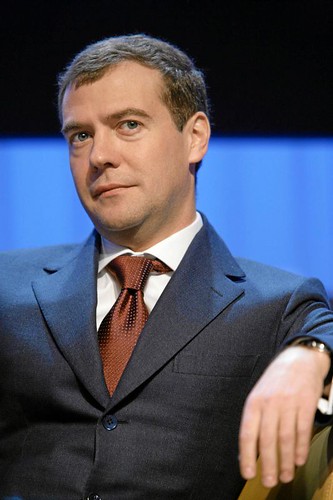Amidst the chaos in Pakistan, where martial law is reigning indefinitely, another state of emergency was declared—this time in Georgia. In similar fashion to Pervez Musharraf, Georgian President Mikheil Saakashvili cracked down on protesters, blacked out independent media, and criticized the opposition.
Unlike in Pakistan, the state of emergency has now ended. But the damage has been done, and the Rose Revolution, which brought democracy to Georgia and vaulted Mr. Saakashvili to power through an electoral landslide, is perhaps starting to wilt.
Martial law was designed to squash unfriendly protests, which have been rampant in Tbilisi and are said by Saakashvili to be sponsored by the Kremlin. However, claims of links between the opposition and Moscow are dubious. Levan Gachechiladze, recently chosen to face Saakashvili in upcoming elections, has denied subservience to Russia, stating that he largely backs the Georgian president’s pro-West policies.
Instead, domestic uprisings arose from Saakashvili’s failure to spread windfalls from high-level economic growth, topping ten percent annually, to the rural poor—agriculture provides for almost half of the population—and slashing of state-owned industry, which led many to the unemployment line.
Be that as it may, while not as potentially dangerous as Pakistan—the country is devoid of an Islamic terrorist or nuclear threat—Georgia’s authoritarian backsliding is damaging to the West.
President Bush’s conspicuous silence on the issue, no pun intended, speaks to the fact that Georgia’s former illustrious status among the neoconservative ranks is fading. Indeed, the reputation of Saakasvili, Bush’s golden boy, took a hit.
Unfortunately, Georgia’s current strife is a negative trend seen throughout the region. This was not always the case; things were looking up in the neighborhood. Democracy activists had a good run in 2004—at least in Eastern Europe and Central Asia. Ten former communist countries joined the European Union, and popular uprisings, known by their respective colors—Rose in Georgia’s case, Orange for Ukraine—resulted in the democratic election of pro-Western leaders in former Soviet republics.
But thereafter, things turned sour. Ukraine has been embroiled with corruption and paralyzing infighting between the pro-Russian Regions Party, led by Victor Yankukovych, and President Yuschenko’s western-leaning Orange Coalition, which has since split into rival factions. And now with Georgia showing signs of implosion, the revolutionary spirits in the region have all but subsided. This is not to mention the repeated sparks flying between the newly independent Baltic states—Latvia, Estonia, and Lithuania—and a resurgent Russia.
To be sure, Georgia is a strategic country, serving as a microcosm of the wider region’s troubles: torn between Moscow and the West, home to separatist movements, and politically unstable. Tit for tat expulsions of diplomats, trade embargos, and downright espionage, have been commonplace between the Eurasian neighbors. A quasi-Cold War—meaning in this case an ideological conflict between those in Moscow’s orbit and others seeking Euro-Atlantic integration—largely confined to Eastern Europe and the Former Soviet Union, is underway.
Tblisi, Moscow, and Washington have all contributed to the acrimony. Saakashvili’s constant paranoia-induced conspiracy theories, along with detention of Russian military personnel, have infuriated the Kremlin. For its part, Russia’s support for the breakaway republics of Abkhazia and South Ossetia, especially given its own separatist problems in Chechnya, smacks of hypocritical opportunism, as does its refusal to allow precious Georgian exports, such as wine, access to its market.
The U.S. has also been insincere in its push for democracy in the country, overlooking some of the Georgian’s president’s misgivings. And as Dmitri Simes points out: “Blind support for Saakashvili contributes to a sense in Moscow that the United States is pursuing policies aimed at undermining what remains of Russia’s drastically reduced regional influence.”
All sides could help alleviate the situation by reversing these mistaken policies. Saakashvili should turn more focus inward, gearing the economy towards wider prosperity and eschewing the opportunity to blame Moscow for all the country’s ills. Putin needs to recognize that territorial integrity is a priority for Georgia, just as it is for Russia, and halt the political usage of trade sanctions.
The U.S. should protect Georgia, as it is a true democracy in a region surrounded by autocrats, the state of emergency notwithstanding, against Russian belligerence. At the same time, if Washington truly cares about democracy in the region, it should criticize its erosion in Moscow and Tbilisi alike—Bush’s muted response to the state of emergency engenders allegations of double-talk.
The stakes are high, and the region is dangerously polarized. Whether the downward slope is inverted is up to the players involved. And while much of the world’s gaze is now largely transfixed on the Middle-East and specifically on Pakistan, policymakers need to pay attention to the other region’s state of emergency.
Subscribe to:
Post Comments (Atom)





No comments:
Post a Comment